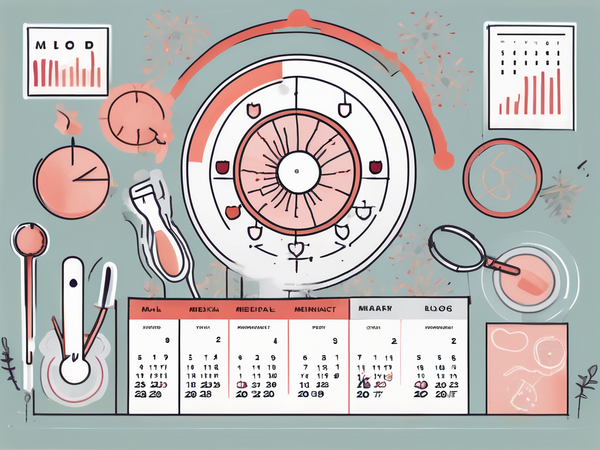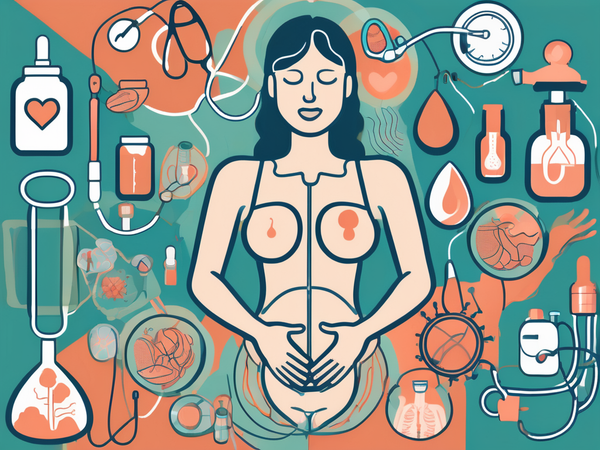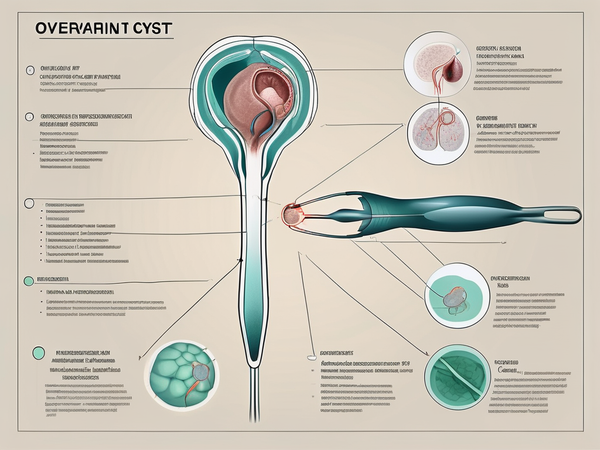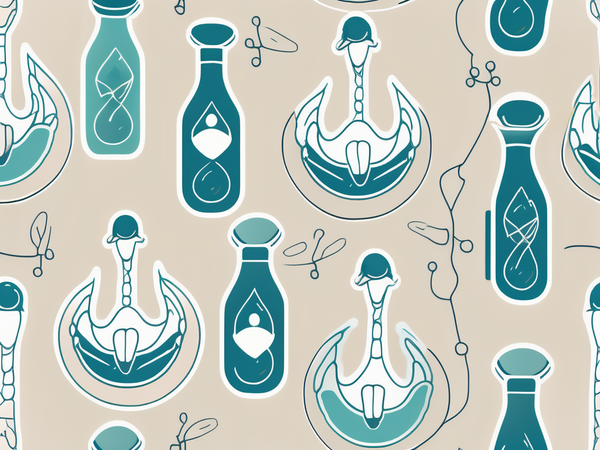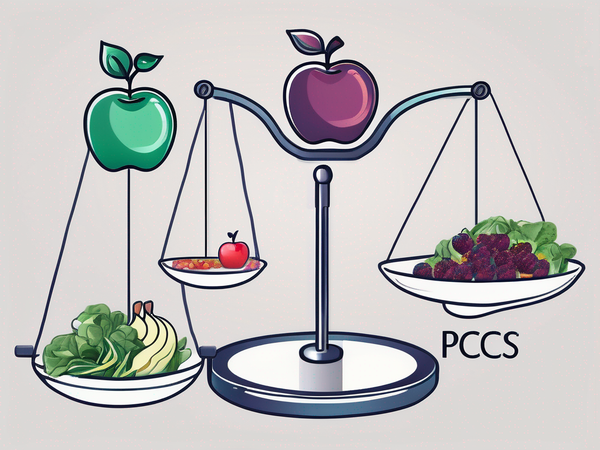Everyone has to take care of their health, but women in particular need to focus more on it throughout the three critical phases of their lives, i.e before, during, and after pregnancy.
Many factors, including your way of life, have an impact on the new life you’re bringing into the world. Everything, from what you eat to what you think, matters! In this article, we've dove deep into the factors that contribute to a safe and healthy pregnancy as well as the significance of getting adequate nutrition before, during, and after childbirth. If you've recently given birth or are trying to get pregnant, scroll down to get all the details.
Pre-pregnancy
Even before you decide to become a mother, your body begins preparing itself when you reach childbearing age. Your body uses your monthly menstrual cycle to let you know when it's time to start a family. Although we dislike our periods for the discomfort they cause, it is your body's way of getting ready for conception. As a result, if you want to conceive, you too need to plan ahead of time and prepare your body. Just like a seed would need the necessary elements to sprout, a new life would need a conducive environment to develop.
Conception and Menstruation
A missed period can be the first sign that you are pregnant. Let's understand how!
1. Ovulation-
There are two ovaries, one on either side of the uterus, that contain many unfertilized eggs. During ovulation, the mature egg is released from one of the ovaries and travels through the fallopian tube. The likelihood of getting pregnant is therefore highest during this time because this is when women are most fertile.
2. Implantation-
In the fallopian tube, this egg tries to attach (implantation) itself to the uterus's lining, called the endometrium.
3. Fertilization-
The egg is fertilized into an embryo when sperm fertilizes an egg in the fallopian tube. Only the fertilized healthy embryos get implanted, and then the process of an embryo gradually growing into a fetus begins, i.e., the beginning of your pregnancy.
4. Menstruation-
If the egg is not fertilized, or only partly attached, or it dies, the body tries to get rid of it by shedding the endometrial lining through the vagina, which is your monthly period. Menstruation takes place inside your body to protect you from any infections caused by unfertilized or dead embryos.
Hence, a missed period is one of the initial signs of the start of pregnancy. The body has laid the foundation, now it’s your turn to nourish this growing fetus by providing it with the right environment and nutrition.
Factors that Affect Conception
Hormonal imbalances like PCOS/PCOD, thyroid dysfunction, premature ovarian failure, and hyperprolactinemia can affect fertility. Conditions like endometriosis, damage to the fallopian tubes, or uterine or cervical problems like polyps and tumors in the uterus could also be a few reasons for infertility.
Tips to Create the Right Environment for Conception
1. Maintain a Healthy Body Weight
Maintaining a healthy body weight through a healthy lifestyle is crucial for conception. Factors like obesity not only impair the ovulation process but may also affect the endometrial lining and implantation. Moreover, leptin, a hunger hormone produced by fat cells (adipocytes), is observed to be elevated in obese women. This leptin has been associated with impaired fecundity (childbearing capacity). At the same time, underweight women may give birth to very small babies or cause preterm deliveries with stunted growth by 1 year. Since your pre-pregnancy weight impacts the baby’s birth weight, you must manage your weight effectively.
2. Get the Right Nutrients through Food & Supplements
Folic Acid: This nutrient plays a crucial role in the development of the brain and spinal cord of the fetus which takes place rapidly post-conception. Neural tube formation takes place within 3 weeks of conception. By the time you realize that you are pregnant, the neural tube and fetal back are almost done. The baby’s brain and spinal cord will further develop from this neural tube. A deficiency of folic acid may lead to birth defects in the brain and spinal cord. The requirement of this nutrient is vital during the prenatal and pregnancy phases. Apart from consuming folic acid-rich foods, you may start with a fertility supplement with folic acid as early as 3 months before conception to ensure sufficient reserves in advance and avoid birth defects.
Iron: The second most common nutrient deficiency found in women of childbearing age due to monthly menstruation and poor eating practices is iron. A deficiency of iron can put you at risk of iron deficiency anemia. Having an iron deficiency Anemia before conception can make things worse for you and your child's health when you enter the pregnancy phase, as this mineral plays a vital role in blood-forming cells. You can counter this deficiency with iron supplements.
Calcium: Needless to say, calcium is important in the formation of teeth and the entire skeletal system of a child. Calcium is also needed for the healthy functioning of the heart and nervous system. Building enough calcium stores beforehand by consuming enough dietary calcium, helps women maintain their bone health and provide additional for the soon-to-arrive fetus in the womb.
Zinc: This trace element is extremely crucial, especially in the pre-pregnancy stage, owing to its role in menstruation, ovulation, and sexual development.
Selenium: We all know how oxidative stress can cause havoc on different cells of the human body, including human reproductive cells, impairing their function. Due to its antioxidant properties, selenium acts as a protective shield against this damage. Selenium also helps in the growth, maturation, and multiplication of female eggs in the reproductive system, thereby supporting fertility.
3. Exercise
Regular exercise before conception can have many beneficial effects on a woman’s body. Exercise and staying physically active can help you maintain healthy body weight and reduce stress, both of which boost fertility. Exercising regularly can help you gain or lose weight by promoting fat loss and gaining muscle mass. Similarly, destressing reduces the risk of hormonal imbalances, thereby promoting fertility.
4. Manage Stress Levels
Try not to fall into this vicious cycle of stress-induced infertility. Whether physiological or psychological, stress can impact fertility in women as it has a direct impact on egg cell formation and fertilization during ovulation. Stressful negative life events can cause the release of the cortisol (stress) hormone. This hormone hinders the production of another hormone estrogen, which is important for regulating the menstrual cycle and the formation of female eggs (oocytes). Thus, stress leads to inadequate or immature egg cells, leading to infertility.
Pregnancy
The beautiful phase of pregnancy may not always have a great start. Growing a new life inside you may not be as easy as it sounds. It comes with some morning sickness and mood swings. Few pregnant women may be lucky to have missed these symptoms. For others, however, it may be an exhausting phase.
Morning Sickness
Morning sickness is the body’s way of protecting the little life trying to develop inside you. While it does cause a hindrance to your daily routine, the good news is that it is temporary and that it's an indication your body is doing its job right to protect the baby.
When a foreign substance, such as bacteria or viruses, enters the body, our immune system is intended to defend us by creating antibodies. The immune system may mistake the developing fetus inside a woman's womb for a foreign entity and launch an attack. The brain tells the immune system to slow down to avoid this and save the fetus. This prevents the antibodies from mistaking the developing fetus for an outsider and attacking it, allowing the body to accept it.
Additionally, it has been noted that certain foods might cause morning sickness, whether seen, smelled, or tasted. One theory suggests that this could be the body’s way of protecting itself from infections by rejecting foods with possible contamination like meat and cabbage/broccoli. Another study also showed that pregnant females with morning sickness were less likely to face miscarriages.
How to reduce morning sickness symptoms
- Have sips of water in between
- Have short and frequent meals
- Opt for dry or cold snacks
- Avoid strong odors/flavors and spices in foods
- Have lemon juice or ice chips for relieving nausea
Tips to Ensure a Healthy Pregnancy
1. Maintain a Healthy Body Weight
While you are bound to gain weight during pregnancy, for obvious reasons, gaining too little or too much weight during pregnancy can lead to complications for both the growing baby and the mother. How much one needs to gain during pregnancy would depend on her pre-pregnancy weight/BMI. Too much weight gain can cause a condition called Gestational Diabetes Mellitus (GDM), a temporary rise in blood sugar levels during pregnancy. Too much fat in the body impairs its sugar regulation process, called insulin resistance, leading to diabetes. This GDM can cause delivery complications such as macrosomia (too-large baby). Gaining too little weight during pregnancy at the same time can lead to a low-birth-weight baby or premature birth. Such babies may have delayed milestones and a low immunity that makes them fall sick often.
2. Get the Right Nutrients through Food & Supplements
The placenta expands as the fetus grows. What your child receives through this placenta is totally dependent on what you eat during this phase. This is why a woman’s requirement for total calories, iron, and calcium increases during pregnancy. A pregnant woman may need around 300 extra calories daily, while the basic guide for having the right nutrition through all the food groups remains the same as pre-pregnancy. But diet isn’t enough to give you and your baby all the nutrients it needs, which is why supplementation is recommended to bridge the nutritional gap.
Iron: Iron is needed for the production of red blood cells. This blood supplies oxygen to various parts of the body. The volume of blood increases during pregnancy, so the need for this mineral also increases. Deficiency of this mineral can lead to iron deficiency anemia and in severe cases, it may lead to babies with low birth weight and may also be fatal in some cases for the newborn. Ensure enough iron intake through food in all stages of pregnancy. In addition, taking a prenatal vitamin like iron can help prevent or even treat iron deficiency anemia.
Calcium: This mineral plays a vital role in the development of bones, teeth, and the skeletal system and is also required for the nervous and circulatory systems. If the intake of calcium by the pregnant mother is insufficient, the growing fetus extracts calcium from the bones and skeletal tissues of the mother. This puts the mother at a greater risk of developing osteoporosis later in life. Hence, ensuring sufficient calcium intake through foods and prenatal vitamins during pregnancy would be a smarter choice for all would-be moms.
Vitamin D: Another vitamin that is extremely crucial for the skeletal muscle system is vitamin D. It helps with the absorption of calcium. Sufficient vitamin D intake during pregnancy can prevent complications such as low bone mineral content, enamel defects, and ADHD in kids. Low vitamin D levels may also cause preeclampsia (elevated BP with high amounts of proteins in the urine) in pregnant mothers. This condition can put both the baby and the mother at risk for mortality.
Folic Acid: This water-soluble vitamin is extremely crucial in the initial stages of pregnancy for the organ development of the fetus. Its importance prevails further during pregnancy in order to avoid any complications, such as the risk of preterm delivery, low birth weight infants, and fetal growth retardation.
Zinc: Zinc helps give your little one its identity. There is a rapid growth of cells during pregnancy, and zinc supports this process of growth and development. Zinc also plays an essential role in the production and functioning of the DNA of the growing fetus. Zinc is mostly found in animal sources like red meat, dairy products, poultry, nuts, and beans. Since vegetarian and vegan mothers may be at risk of deficiency in this mineral, prenatal vitamins come to their aid.
Selenium: Selenium is not only important for conception but also plays a role in the pregnancy phase. Insufficient selenium has been linked to pregnancy complications such as miscarriages, damage to the nervous and immune systems of the fetus, and low birth weight in newborns. Selenium is mostly found in animal and plant sources; however, the selenium concentrations of plants may differ from soil to soil.
Omega 3 Fatty Acids: Another important nutrient during pregnancy is Omega-3 fatty acids. Research indicates that one of the omega-3 fatty acids, named DHA (docosahexaenoic acid), is particularly beneficial in preventing the risks of preterm delivery and low birth weight babies. One of the studies published in a clinical journal revealed that DHA supplementation through prenatal vitamins reduced early preterm births dramatically.
Vitamins: Vitamins are nutrients that your body needs for various functions like metabolism, digestion, immune regulation, etc. A healthy, balanced diet containing a variety of foods from all food groups provides us with these vitamins. During pregnancy, the requirement for these vitamins increases twofold. Vitamin A, Vitamin B complex, Vitamin C, Vitamin D, and Vitamin E all have a small but significant role to play. From minimizing the risk of birth defects to relieving symptoms of pregnancy and supporting the mother's metabolism. One of the best ways to ensure having all of these vitamins daily is to include prenatal vitamins.
3. Foods to Avoid
Having the right nutrition does not just mean eating the right foods but also eliminating the wrong ones. Consuming unhealthy or unsafe foods during pregnancy can have serious effects on the mother and growing fetus. While a few of them may cause severe infections, others just give you empty calories, and no nutrition, causing unnecessary sugar spikes and fat gain, or may simply raise your blood pressure.
Avoid
- Seafood containing mercury- Big eye tuna, mackerel, swordfish, tilefish, shark, and marlin
- Raw/contaminated/undercooked seafood- Sushi, raw oysters, clams, smoked or jerky seafood
- Undercooked meat/poultry/eggs- Avoid eggnogs, poached eggs, uncooked hot dogs, and luncheon meats.
- Unpasteurized milk and soft cheese like feta or blue cheese
- Unwashed fruits and vegetables
- Alcohol
4. Exercise during Pregnancy
Exercise during pregnancy does not just help you manage stress, maintain healthy body weight, and ensure a smooth delivery; it has many more benefits. Pregnancy may also come with minor discomforts, and exercising regularly may help you relieve those symptoms of backaches, bloating, constipation, etc. It also helps in strengthening your bones and muscles and provides flexibility to the body, which can help with smooth delivery. Exercising during pregnancy may also help you lose weight postpartum.
5. Manage Stress Levels during Pregnancy
Pregnancy can be stressful, both physiologically and mentally. Plus, the mood swings credited to hormonal changes just add to the load. The stress of becoming a mother, work stress, disputes in the family, or worrying about miscarriage are all normal. But the need to de-stress during pregnancy is extremely crucial.
Whatever you feed yourself, everything reaches the baby—not just the food you eat but your emotions and thoughts too. High-stress levels may cause symptoms like headaches, loss of appetite, emotional eating, or even high blood pressure, which increases the chances of preterm delivery and low birth weight in infants. You may try de-stressing with yoga and meditation, which can help with normal delivery as well.
Post Delivery
Your newborn may be out in the world, but he or she still needs you. Your body has just gone through dramatic changes at various levels, and postpartum is the time to relax, recover, and rejuvenate. Your newborn’s nutrition is still totally dependent on you, at least for the first 6 months, while your body needs to heal and nourish. So make sure you prioritize your health in the postpartum phase too.
1. Breastfeeding:
An important part of motherhood is nourishing the child through breastfeeding (lactation). Breastfeeding does not just benefit the child nutritionally; it also helps the mother and the baby bond together. The skin-to-skin contact between baby and mother releases the hormone oxytocin in the mother and helps the baby feel relaxed and comforted. Breastmilk is a storehouse of nutrients and antibodies. It protects infants from a host of infections and promotes their brain and overall development. Breastmilk doesn't just benefit the child; it helps improve the mother’s health too. Mothers who breastfeed have a lower risk of developing cancer and diabetes. Breastfeeding also helps moms lose extra fat by burning 200–500 calories daily for milk production, thereby promoting weight loss.
With delivery, certain discomforts and body changes are common, such as vaginal discharge, contractions, vaginal soreness, painful bowels, incontinence, tender breasts, etc. Speak to your gynecologist, however, if the symptoms are severe or unbearable. Also, focus on improving your overall health by following the below tips.
Tips to Improve your Health Post-Pregnancy
1. Get the Right Nutrients through Food & Supplements
The basic food groups remain the same as during pregnancy, but now you may need an additional 330–400 kcal of energy than you would have consumed before conception. Eating a healthy balanced diet post-delivery ensures supplying healthy and optimum nutrients for the child's growth and for maintaining the mother’s health and restoring her reserves. The nutrients from whatever the mother eats or drinks, are passed through the breastmilk to the newborn during breastfeeding. It is therefore important to pass on the right nutrients to ensure the proper growth and development of the child.
Iron: The iron requirement of lactating mothers increases during the lactation period. While you add iron-rich foods like red meat, organ meats, chicken, fish, beans, spinach, etc. remember to combine them with plant-based sources and vitamin C-rich foods like oranges, guavas, gooseberries, etc. for maximum absorption. Also, avoid combining them with calcium-rich foods that tend to hinder iron absorption from foods.
Calcium: The dietary requirement for calcium increases during pregnancy and the breastfeeding period. Sufficient calcium intake during the lactation phase ensures the replenishment of maternal calcium stores, thereby preventing bone-related disorders. Adequate calcium supplementation is also required for fetal bone and skeletal muscle development. Most vitamins for postnatal use include calcium for the same purpose.
Zinc: The requirement for zinc is higher in lactation than in pregnancy, especially in the early phase of lactation. As a result of this, the risk of deficiency of this mineral is high in cases of poor dietary zinc intake. Hence, postnatal vitamins containing zinc can be beneficial during lactation.
Selenium: This component of breast milk is found in colostrum in high amounts. Colostrum is the first thick, yellow milk produced after delivery, which is full of nutrients and immunity-boosting components. The concentration of selenium gradually decreases as lactation progresses; hence, supplementation of selenium in the form of postnatal vitamins is a smart choice.
Galactagogues: Certain foods that help mothers increase or boost their milk production are called galactagogues. Fenugreek seeds are one of the most common galactagogues. You may use them as whole seeds, in powdered forms, or even sprout them. Blessed Thistle, Alfalfa, and Goat's Rue are a few less popular herbs that may exhibit mild galactagogues properties.
2. Exercise Post-Delivery
Along with helping you get back in shape after delivery, this will be of great assistance to you. But after giving birth, don't rush to get back to your pre-pregnancy weight. Over the course of nine months, your body has undergone numerous changes and is still attempting to recuperate from the transition caused by labor and delivery. Go slow and steady. You may improve your heart health, increase your energy levels, strengthen and tone your abdominal muscles, and reduce weight by combining regular exercise with a balanced eating plan.
3. Stress Management Post Delivery
Stress can have a direct impact on the mother’s health as well as her milk-producing capacity. Postpartum depression is a common disorder that may affect a few moms within the first year of childbirth. PPD can also be a complication of delivery due to hormonal changes. Few moms may experience mild symptoms of baby blues like mood swings, anxiety, sadness, etc. When prolonged with an increase in the severity of symptoms, it may progress into PPD. Try seeking help or destressing by engaging in activities like meditation, seeking support for child care, getting enough rest, and being gentle with yourself. Motherhood doesn't come with a manual; you learn and grow as a parent along with your child, and remember that there is no such thing as a "perfect mom." Feel free to seek professional help if you find it overwhelming.
General Food Pyramid for all 3 Phases
For a better understanding of a balanced diet, you can refer to the Food Pyramid provided below.
Pre-pregnancy: Your entire day’s calories need to come from all the food groups in the healthy food pyramid.
Pregnancy: You would need 300 more calories than in the pre-pregnancy stage.
Postpartum: You would need 450 more calories than in the pre-pregnancy stage.
8-9 portions of cereals and millets(30 gms each) - This would include grains like ragi, rice, jowar, bajra, oats, whole wheat, etc. Always select whole grains over refined ones. For eg. select multigrain flour over refined flour, as the refining process eliminates the nutritionally rich components of grains.
3-4 portions of vegetables(100 gms each)- From green leafy vegetables to cruciferous, eggplants, cucumbers, tomatoes, bell peppers, lady fingers, etc., all have a variety of different colored vegetables that have been thoroughly washed. Whenever possible, retain the skin, as it’s rich in fiber and other nutrients.
1-2 portions of fruit(100 gms each)- Opt for a variety of fruits (apples, oranges, berries, melons, etc.) daily. Make sure to select whole fruits over fruit juices for their low-calorie and high-fiber content. Again, try to retain the peels of fruits that are edible and ensure thorough washing or soaking in lukewarm water before consumption to get rid of any chemicals sprayed or wax coating.
5 portions of milk & milk products(100 gms each)- Go for dairy products like milk, curd, cottage cheese, buttermilk, ghee, etc. You may want to have low-fat milk, in case you are overweight or have heart health problems.
2 portions of plant protein and 1 portion of non-veg protein (30 gms each) - Plant proteins such as besan, and dals (toor, moong, etc.), and non-vegetarian proteins like poultry, eggs, and fish are great sources of nutrients. Again, please have non-vegetarian proteins from clean sources and cook them well to prevent any form of infection.
6 portions of fats & oils (5 gms each)- Apart from 2- 3 tsp of cooking oil, go for the healthy fats present in foods like almonds, fatty fish, walnuts, flaxseeds, avocados, etc. instead of fats from deep-fried foods and saturated versions like butter, margarine, etc.
3-4 portions of sugar (5 gms each)- If you are a non-diabetic, you may opt to eat a maximum of 4 portions of sugar per day. Try to get them from healthier versions like jaggery, honey, etc. instead of table sugar or hidden sugars in packaged or store-bought items like pastries, energy drinks, cookies, etc.
Note: The above portion and serving sizes are suggested as "general dietary guidelines" for a healthy pregnancy. However, kindly check with your practitioner once before implementing this, as the requirement may differ from person to person based on their medical profile.
The Importance of Supplements during Each Phase
Ensuring that you get all the important nutrients through food can be challenging, which is why supplements are vital. Fertility supplements, prenatal vitamins, and vitamins for postnatal can come to your aid. The market is loaded with some of the best prenatal and postnatal multivitamins to support mothers’ well-being and infant growth and development. These prenatal and postnatal supplements can go a long way in filling up the nutritional gap and ensuring daily intake of essential minerals, too. While selecting prenatal and postnatal supplements, look for those that are plant-based and free from preservatives, fillers, etc. Picking supplements that use delayed-release technology is highly beneficial as they release nutrients over a span of eight hours. This makes it easy on the stomach and provides a sustained release of nutrients spaced out throughout the day to ensure maximum absorption.
Wrapping Up
Motherhood teaches a woman selflessness in its true sense. But do not forget that self-love and self-care are equally important. A growing child’s needs can exhaust a mother physically, mentally, and emotionally, and even deplete her internal nutrient stores. While you continue to provide for your child, ensure you are providing for yourself too.
We’d like you to take care of yourself and your little one at the same time. Remember to cherish and nourish yourself and your health with the help of prenatal vitamins and vitamins for the postnatal period. And while you make this addition to your routine, kindly get it approved by your doctor.
References
How to get pregnant - Mayo Clinic
Female Infertility: Causes, Risk Factors, Tests & Treatment (clevelandclinic.org)
Female fertility: Why lifestyle choices count - Mayo Clinic
doi:10.1530/REP-09-0568 (usp.br)
Pregnancy | National Health Portal Of India (nhp.gov.in)
Neural Tube Defects | Johns Hopkins Medicine
Iron deficiency anemia during pregnancy: Prevention tips - Mayo Clinic
Girdhar Hospital Sonepat | Mother & Child Specialist
Iron deficiency anemia during pregnancy: Prevention tips - Mayo Clinic
Preeclampsia (vitamindcouncil.org)
Selenium - Health Professional Fact Sheet (nih.gov)
Pregnancy nutrition: Foods to avoid during pregnancy - Mayo Clinic
Pregnancy weight gain: What's healthy? - Mayo Clinic
Nutrition Tips for Breastfeeding Mothers | UCSF Health
Understanding Breastfeeding Benefits | MCHB (hrsa.gov)
https://www.ucsfhealth.org/education/nutrition-tips-for-breastfeeding-mothers
Morning sickness: a mechanism for protecting mother and embryo - PubMed (nih.gov)
















